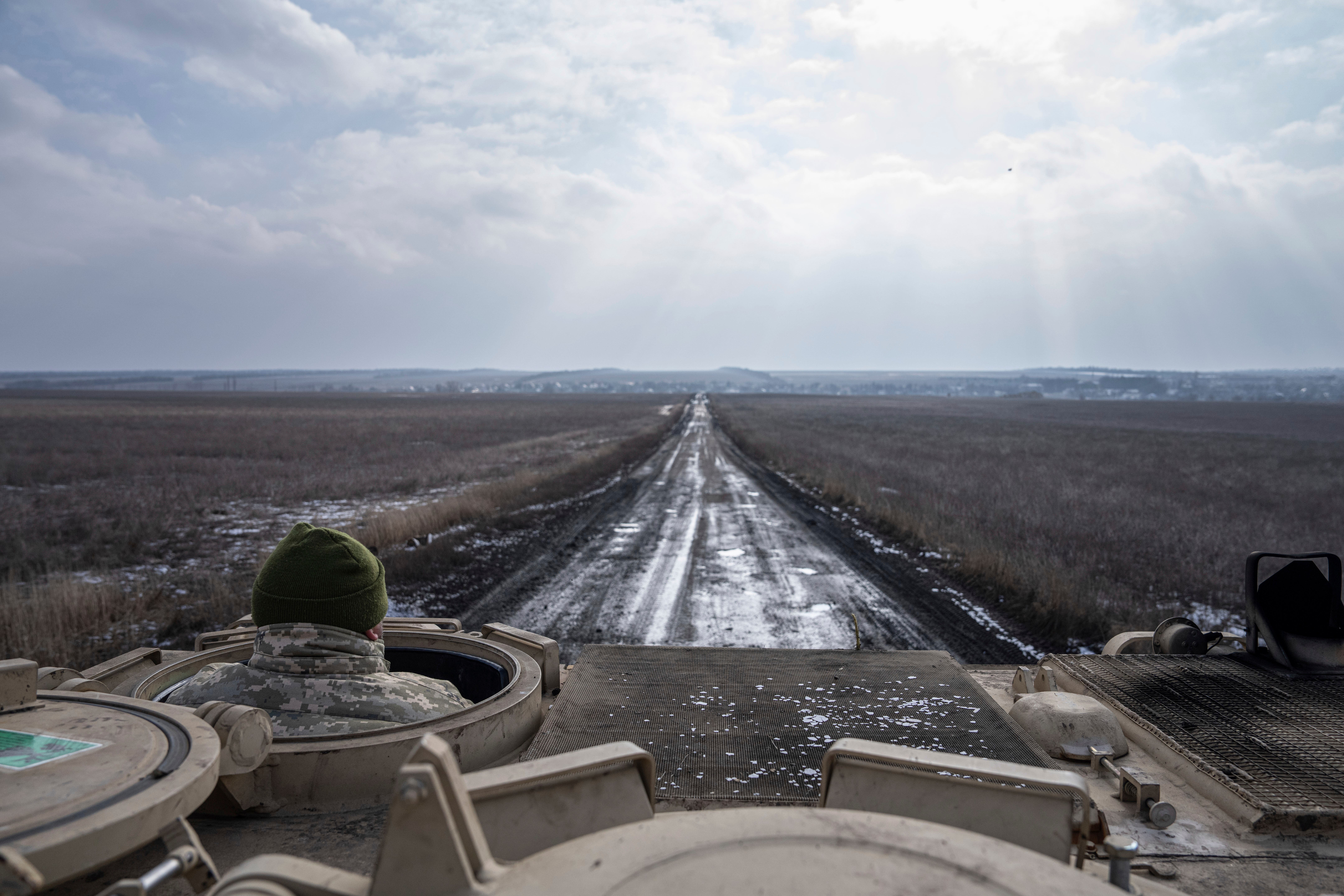No prospect for Ukraine war negotiation ‘anytime soon’, say western officials
Ukraine is unlikely to reverse recent gains by Russia with ‘relative stability on the front line’ expected, the officials said.

Your support helps us to tell the story
From reproductive rights to climate change to Big Tech, The Independent is on the ground when the story is developing. Whether it's investigating the financials of Elon Musk's pro-Trump PAC or producing our latest documentary, 'The A Word', which shines a light on the American women fighting for reproductive rights, we know how important it is to parse out the facts from the messaging.
At such a critical moment in US history, we need reporters on the ground. Your donation allows us to keep sending journalists to speak to both sides of the story.
The Independent is trusted by Americans across the entire political spectrum. And unlike many other quality news outlets, we choose not to lock Americans out of our reporting and analysis with paywalls. We believe quality journalism should be available to everyone, paid for by those who can afford it.
Your support makes all the difference.There is no prospect for negotiation “anytime soon” over the war in Ukraine, western officials have said.
They added that Ukraine was unlikely to reverse recent gains by Russia with “relative stability on the front line” expected.
Russia captured the tactically significant town of Vuhledar on Wednesday, as officials said Moscow would now “seek to exploit opportunities in villages and towns in its vicinity in the coming weeks”.
However, they added that Russia would not be able to “fundamentally capitalise on these gains”.
We don't see any sign of President Putin resigning from his principal aim, which is the subjugation of Ukraine's sovereignty
Western officials said: “We’re not going to suddenly see a breakthrough and a rapid advance of Russia westwards.
“It will just continue to be this slow grind.”
Meanwhile, Ukraine currently occupies just under 800 square kilometres of Russian territory.
Western officials said they could not “see any prospect for a negotiation anytime soon” over the war, which has been ongoing since 2014 with Russia launching a full-scale invasion in February 2022.
They added: “We don’t see any sign of President Putin resigning from his principal aim, which is the subjugation of Ukraine’s sovereignty.”
New Nato secretary-general Mark Rutte vowed on Tuesday to help shore up western support for Ukraine in his first official trip since taking office.
Mr Rutte, prime minister of the Netherlands from 2010 to 2024, met Ukrainian President Volodymyr Zelensky in Kyiv as air raid sirens twice went off in the Ukrainian capital.
Russia’s air force was “incredibly irresponsible” in hitting a civilian vessel in international waters with a suspected 1960s missile, western officials added.
The merchant vessel Aya was carrying 26,000 tons of grain from Odesa on September 11 in the Black Sea when it was hit by a missile, which officials said was “highly likely” to be a AS-4 Soviet kitchen missile.
They added that the Russian air force’s use of “really dangerous operating procedures” and “poor munitions” was increasing the risk of civilian vessels being hit.
“It’s highly unlikely that the Russians are deliberately targeting these grain vessels, and it was simply struck due to poor targeting procedure by Russian pilots in part, as well the ageing munition,” they added.
Officials said Ukrainian strikes in Russia last month resulted in around 100,000 tons of ammunition being destroyed and the “largest loss of North Korean-supplied ammunition” to Moscow during the war.
Between September 18 and 21, Kyiv struck a depot at Tikhoretsk, Russia, and two sites near Toropets about 500 kilometres from the Ukrainian border.
The depots stored a variety of calibres of munitions, guide bombs and missiles, as well as ammunition procured from North Korea.
Further mobilisation by Moscow would “take people out of the workforce and generate another round of emigration”, officials said as they highlighted the “real pressure on the Russian economy”.
They added that it was “too early to say” how the ongoing conflict in the Middle East would affect Iran-Russia relations.